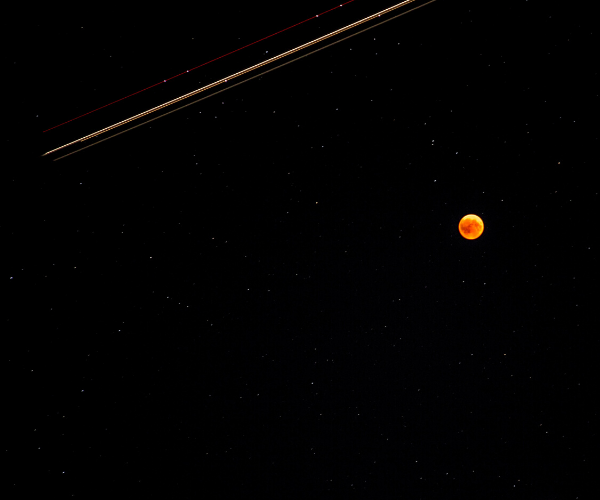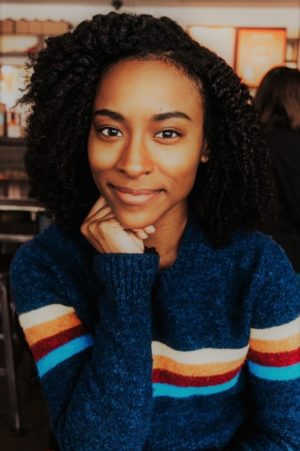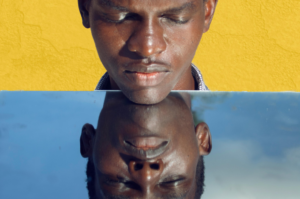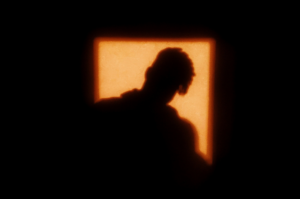
Don’t be political.
Sinclair Wash Trail:
Anger is that which your body recognizes as alien; that which has been whittled nonexistent; you temper that emotion at the age of eight when you indulge it and learn that your angry is angrier because it’s also darker; when you serve a man who says he’ll take his coffee like you; standing phone-to-ear at the bus stop when a woman nearby interrupts to say, you have great diction; when he lets his dogs off their leashes as you jog past; in your sleep when this all happens again; you forget what it’s like to be angry until your larynx stiffens from singed resistance; from charred light curdling in the back of your throat.
Don’t sit on a fence.
Woody Mt. Road:
I tried to be both; tried to cinephile-file roles; tried to balance our budget; tried to sleep in my own bed; tried to re-create memories; to be in two places at once; to protract the hours in a day; tried to be honest anyway; tried to sit on my hands so they wouldn’t reach for her; tried to spell without vowels; tried to circumnavigate her body; tried to sorrel our walls; tried to pray it away; to run it away; tried to away; this is when I learned to splinter.
Saying nothing is saying something.
Fat Man’s Loop:
The dogs are off their leashes again, moments before I meet his path. I say to myself, don’t move over this time, let them move over. Let them disrupt their own PRs, mess up their own stride. Close enough to feel heat radiating off his jogging fluorescents, I inch to my right.
I can’t hear you.
Been dreaming about grandma lately, about running into her house after school and watching her rescue the princess on Nintendo classic. She was really good at being Mario, at moving through different worlds, at saving. I’d ask with my small voice can I play? She’d look at my school uniform covered in grass stains, my fingers sticky with the remnants of a pb&j. It’s hot right now, let the machine cool down. I’d wait thirty or so minutes which felt like hours, return to the living room, remove the cartridge and blow.
I could never make it through the underwater theme.
Not choosing is also a choice.
Buffalo Park:
They ride their bikes close so dirt kicks into my nostrils, they look back to watch me cough.
Silence speaks.
Walnut Canyon Ranch:
I learn to give her alfalfa pellets, to stretch my hand out flat, to pet her crest and say, that’s a good girl. I learn to stand parallel with her legs when removing her coat, to pat her bum before I unclip the left hook, to not bother with getting her to like me, she will never like me. I learn that naming a horse is an art. That it took Susan over a year to come up with “Yankee” and that she’s fine with it. I learn their names can’t be more than eighteencharacters, that I’ll never own Ubiquitouuuuuuuuus. I see the rope hanging in their front yard, chalk it up to a game for their grandkids, a tool to swing on. It is the noose at the end that makes me wonder if I should ever return to feed the horses. To find another subset of winona acreage to run through.
Say it, I dare you.
Downtown:
Sometimes, when we experience trauma, we build a boundary of invincibility. We think, the worst has already happened and I survived. At least, this is what I did and still try to fake. I was assaulted last August, seven days after moving to a new town. I knew the guy; we went to high school together. Erring-on-the-side-of-caution was fleeting. I relied on a mutually established sense of trust over four years old. I wrote poems about it, some of which are in the ether right now, being traipsed by cursors and sponged with the fingertips of a stranger. After this event, this uncanny eventuality, I stopped running. This had always been my way of shedding; through perspiration and escapism, I let trees and trail markers lead me through unnerving, undoing, and misremembering. Like most of the runners on my high school track team and those I met while briefly a part of a collegiate team in Seattle, it is our sustenance, theoretically as important as air itself. This, if you couldn’t tell, is written in the vein of writing’s most repudiated word, passion. Back then I was a sprinter, I hadn’t learned to appreciate great distances, pacing, stride, or breath. Sealed-off from the outside world with chain-link barriers, I also didn’t know what it was like to run without the protection of synthetic rubber keeping me from traversing a world unknown.
Forget about how hot it is. I don’t think about it. Running in Arizona is what it is. Hydrate, you’ll be fine. There are other dangers that lurk besides hyperthermia. Suburbs of Phoenix, like Gilbert or Casa Grande (maybe its own town and not a suburb), are mostly white communities. I grew up on the east side of Casa Grande. I built speed being chased by loose dogs in the neighborhood while walking to and from the bus stop. Apoplectic though they may have been, we understood we were helping one another out – me with learning to accelerate, them with their daily exercise. Is this what men with confederate flags billowing from the back of their F-150s believe too?
Who is this little black girl, and what is she running from?
Winning:
Winning a race used to involve medals, ribbons, clout.
Winning means punching code into my garage’s keypad, getting back. Winning is protracting, is living longer than yesterday.
***********
Post photo by Mohammed Jabber via Unsplash
***********
About the Author:
 Cymelle Leah Edwards is an MFA Creative Writing candidate at Northern Arizona University. Her work has appeared in Essay Daily, Contra Viento, Elm Leaves Journal and elsewhere.
Cymelle Leah Edwards is an MFA Creative Writing candidate at Northern Arizona University. Her work has appeared in Essay Daily, Contra Viento, Elm Leaves Journal and elsewhere.









COMMENTS -
Reader Interactions